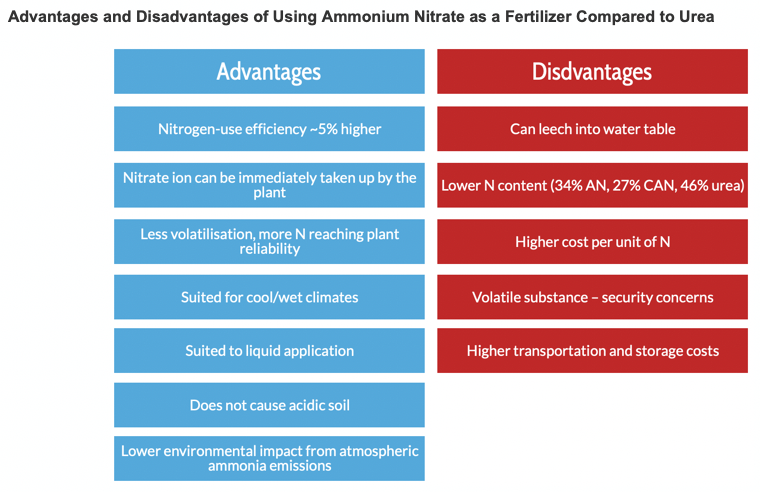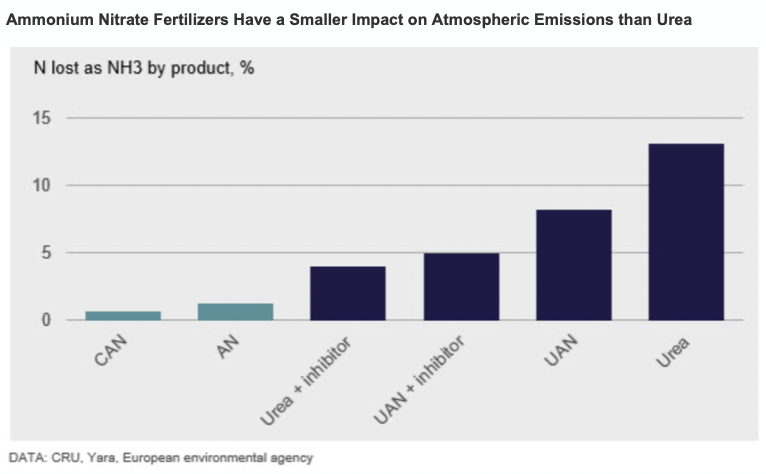- Incidents involving Ammonium Nitrate are often followed by a wave of stricter storage and handling regulations.
- However, an industry-wide overhaul in regulation is not deemed the best approach as several countries have mature and efficient ammonium nitrate markets.
- This is particularly the case for farmers using ammonium nitrate as fertilizer, which has several agronomic and environmental benefits over urea.
Why Farmers Prefer Ammonium Nitrate-Based Fertilizers to Urea
The main advantage of using ammonium nitrate-based fertilizers is that nitrogen is more rapidly available to crops.
Ammonium nitrate fertilizers contain two forms of nitrogen which benefit plant growth in different ways – half of the nitrogen it contains is in the form of ammonic N and half in the form of nitrate N.
The nitrate component can be immediately taken up by crops providing an instant nitrogen dose, while the ammonic component provides a ‘slow-release’ effect allowing the plant to benefit from a nitrogen source over a longer period of time.
As a result, a higher proportion of nitrogen is absorbed by the crop rather than being emitted into the atmosphere.
The following table outlines some of the safety measures for farmers/merchants/traders involved with handling and storing ammonium nitrate.

In some regions, the use of ammonium nitrate-based fertilizers is also being framed as a way to reduce atmospheric ammonia emissions in agriculture.
Urea is the nitrogen product being most heavily targeted, due to it having the highest associated emissions.
Once applied to the soil, urea breaks down into ammonia, which is facilitated by a urease enzyme in a process called hydrolysis.
This process causes ammonia losses which are then emitted into the atmosphere and ultimately have harmful impacts on the environment and human health.
As a result, the use of nitrate fertilizers is being encouraged, particularly in regions such as Europe where there is an established infrastructure in place.

Could the Beirut Explosion Lead to More Stringent Ammonium Nitrate Regulation?
We think it is highly likely that officials in Lebanon will introduce strict localised regulations on ammonium nitrate once the country comes to terms with the devastation in Beirut.
Initial reporting suggests a clear failure in ammonium nitrate storage procedures at the port and authorities will launch a more detailed investigation once the initial state of emergency has been handled.
The regulation is likely to focus almost entirely on port storage, given that Lebanon has no domestic consumption of ammonium nitrate.
Other major international ports, not typically used to dealing with ammonium nitrate, may also choose to review or reinforce their hazardous chemical regulations.
However, it is important not to demonise the appropriate use of ammonium nitrate, which on the whole encounters few incidents globally.
At this stage, we think it is unlikely to prompt heightened usage regulations outside of the immediate region, but it certainly serves a bleak reminder of the importance of the appropriate ammonium nitrate storage and handling.
